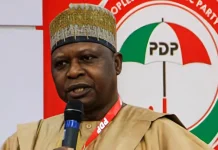Professor Pat Utomi, convener of the recently announced Big Tent Coalition Shadow Government, has pushed back against harsh criticism from the Federal Government and the ruling All Progressives Congress (APC), asserting that the shadow cabinet is a legitimate, constitutional platform for democratic engagement not a political stunt or an act of subversion.
In a public statement titled “In Service of Country, In Obedience to Conscience”, Utomi said the shadow government aims to offer policy alternatives, encourage public discourse, and hold political leaders accountable in a time of worsening national conditions. He described it as a “citizens’ platform for responsible democratic opposition” created in response to Nigeria’s rising hunger, insecurity, economic decline, and eroding public trust.
“This is not a rebellion. It is not a claim to executive authority. It is not a parallel structure to the state,” Utomi said. “It is a national conscience project a space for voices that refuse to be silent in the face of national decline.”
Government officials and APC figures have previously dismissed the initiative as unconstitutional, dramatic, and even a possible threat to national order. But Utomi challenged these characterizations, arguing that dismissing the platform as “drama” trivializes the real suffering of millions of Nigerians who are “forced to perform each day just to survive.”
He clarified that the shadow government is not an electoral body or political party and does not intend to rival the existing government’s authority. Instead, it seeks to function as a moral and intellectual check on power, inspired by civic duty and democratic principles.
“To those in authority: this initiative does not seek to undermine your office. It seeks to awaken our shared responsibility,” Utomi stated. “We come not with violence or confrontation, but with ideas, dialogue, and discipline.”
Calling on citizens to participate rather than remain passive, Utomi urged collective civic action. He framed the coalition’s efforts as an obligation in a time of national crisis, declaring, “When silence became dangerous, some spoke. Not to incite, but to inspire. Not to divide, but to reform.”
The Big Tent Coalition announced plans for its shadow ministers to begin unveiling policy alternatives for various sectors and facilitating dialogues nationwide. Despite resistance from establishment forces, Utomi concluded with a vision of hope and courage: “Nigeria must risenot by decree, but by design. Not through coercion, but through courage. Not in shadows but in truth.”










